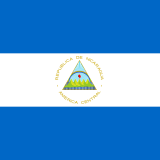Nicaragua
Country Profile
There were no significant changes in the human rights situation in Nicaragua during the year.
Significant human rights issues included credible reports of: arbitrary or unlawful killings, including extrajudicial killings; enforced disappearance; torture or cruel, inhuman, or degrading treatment or punishment by prison guards and parapolice; harsh and life-threatening prison conditions; arbitrary arrest or detentions; serious problems with the independence of the judiciary; political prisoners; transnational repression against individuals located in another country; arbitrary and unlawful interference with privacy; punishment of family members for alleged offenses by a relative; serious restrictions on free expression and media freedom, including threats of violence against journalists, unjustified arrests and prosecution of journalists, and censorship; substantial interference with the freedom of peaceful assembly and freedom of association, including overly restrictive laws on the organization, funding, or operation of nongovernmental and civil society organizations; restrictions on religious freedom; restrictions on freedom of movement and residence within the country and on the right to leave the country; inability of citizens to change their government peacefully through free and fair elections; serious and unreasonable restrictions on political participation; serious government corruption; serious government restrictions on and harassment of domestic and international human rights organizations; extensive gender-based violence, including femicide; crimes involving violence or threats of violence targeting members of ethnic groups and Indigenous peoples such as the Mayangna and Miskito communities; trafficking in persons, including forced labor; crimes involving violence or threats of violence targeting lesbian, gay, bisexual, transgender, queer, or intersex persons; significant restrictions on workers’ freedom of association; and the worst forms of child labor.
The government did not take steps to identify and punish officials who may have committed human rights abuses.
Parapolice – nonuniformed, armed, and masked units with marginal tactical training and loose hierarchy that acted in coordination with government security forces and reported directly to the Nicaraguan National Police – and individuals linked to the government of President Daniel Ortega Saavedra carried out a campaign of harassment, intimidation, and violence toward perceived enemies of the regime, such as former political prisoners and their families, farmworker activists, prodemocracy opposition groups, human rights defenders, private-sector leaders, and clergy, other religious actors, and church-affiliated civil society groups. Authorities did not investigate or prosecute these actions.
Cases
Released
Image

Nicaraguan Protesters |
For Further Reference
Full U.S. Department of State Human Rights Country Report
U.S. Department of State International Religious Freedom Country Report
U.S. Commission on International Religious Freedom Annual Report Chapter
U.S. Department of State Trafficking in Persons Report Country Narrative
Report of the Working Group on the Universal Periodic Review
Human Rights Watch World Report Country Chapter
Amnesty International Annual Report Country Chapter
Freedom House Freedom in the World Country Report